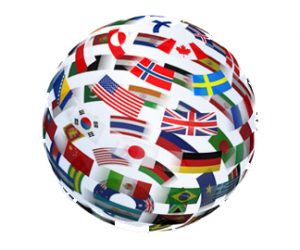Adding to my end-of-year childfree trending pieces, it’s time to look back at childfree trends for 2018!
Connecting Beyond Childfree Talk
This past year, I am delighted to have seen a growing number of open and closed online discussion forums popping up with childfree members that aim to connect in other ways than childfree-related topics. Living Childfree Foodies is one that led the way, starting in 2014, and here are just a few more: Childfree Wives, Beyond the Childfree Zone, Childfree Animal Lovers, Childfree World Travelers, Childfree Pilots’ Wives, Childfree Choice Book Club.
Many childfree people feel that having no kids by choice in common is not enough to form lasting connections and friendships. These kinds of groups reflect ways to find things in common beyond reproductive choice. I predict we will continue to see more of this.
More Muddled Use of Childfree, Child-free, Child free, Childless, and New Trending of Childfree by Choice, Child Free by Choice
Even more than last year, in 2018 we have continued to see a number of different ways to express what has been commonly termed “childfree” since the 70s. In 2009, when I started my blog, La Vie Childfree (which now lives here on this site), I learned that the National Organization for Non-Parents (NON) originated the use of “childfree” and Leslie Lafayette increased its common usage when she started the Childfree Network in 1995. Since the late 1990s when I began studying the childfree choice and those who make it, “childfree” has been ‘the’ word to describe those who do not have children by choice. Fast forward to the last couple of years or so when we have started seeing more words and phrases being used to mean childfree as well as different meanings.
Child-free has been used to mean childfree, but also to mean not having kids ‘yet’, being ‘free’ of one’s kids at the moment, or currently in a kid-free environment. The same goes for child free; it can mean childfree, not having kids yet, not being with one’s kids right now, or in a kid-free environment. Childless continues to commonly be used synonymously with childfree. Too often, childfree is also used to describe those who don’t have children by chance or circumstance, which is not synonymous with the conscious choice not to have children.
Since last year, we have also especially seen more of the phrase, “childfree by choice” used to mean childfree. Maybe this use began because of other muddled uses, but to me, it is redundant. Choice is already inherent in the term childfree, at least from its original intent. “By choice” implies there is also the option of it not being a choice – in other words, there is such a thing as “childfree not by choice.” What would that mean?
Last year I hoped that we’d see less of this confusing terminology in 2018. However, this year I’ve seen even more of it! The list of examples runs way too long to show here. If you read articles on childfree-related topics you will undoubtedly see what I mean. And as I expressed last year, one place you won’t find this muddled use is here!
Talking Childfree Goes Even More Global
Now this is the biggest trend I have seen all year. More than ever before, we’ve seen more discussion on the childfree choice across the globe. We have started to see talk from countries like South Korea, Pakistan and Russia; just a sprinkle of examples include: “Why I never want babies,” “Social circumstances, preference fueling rise of ‘DINK’ couples in S. Korea,” “I am a Pakistani Woman Who Doesn’t Want Children And That Does Not Make Me Selfish,” “What’s it like to be childfree in Russia?”
This past year we have also seen more childfree talk coming out of Africa. Three pieces that stuck out for me that represent the kind of takes we are seeing more of include: “Kaz – My Reasons for Not Wanting Children in My Life,” “Four men on why they don’t want to have children” (in one of the largest newspapers in Kenya), “Running our happy marriage without kids.”
And we have seen an expansion of childfree-related topics coming out of India like: “Child-free By Choice, For The Planet’s Sake!” (see Trend I above for commentary on the use of ‘child-free by choice’!), “‘It’s a Pretty Nasty World’: Reasons Indian Choose Not to Have Kids,” “Meet These Child-Free And Happy Couples (here too, see Trend I above),” “No kidding!”
Increased global talk on the childfree choice shows clear signs of a growing childfree world community.
Worthy of mention…
More talk that busts myths on the biological clock and maternal instinct
We see more descriptions that get right to the point, like this from the piece, “Not Feeling Your Biological Clock Tick? You’re Not Alone” on helloflo.com – seeing the biological clock as “condescending,” a “media phenomenon,” and a “cultural construct.”
Procreative ethics reason to have no children
In interviewing childfree couples, I have found that environmental reasons don’t top the list of why they decide to have no children, but this past year I have started to see more talk about concerns of climate change with those in their 20s in particular. On example on elle.com that captures the theme I am seeing and hearing more of: “5 Women on Deciding Not to Have Children Because of Climate Change.”
In addition to delaying having children, will more people decide to have no children because of procreative ethics reasons? I am watching with interest.
Continued straight talk on regret
As I wrote last year, this topic is not directly about the childfree, but it is certainly related to it. With more honest talk about the realities of regret, more women will hopefully not be convinced by pronatalist society that they have to become mothers to be a “normal” woman. This year, Orna Donath’s work lives in a growing number of discussions from different countries such as: “’I would have been far happier being child-free’: Women who REGRET becoming mothers reveal how they secretly long for their old lives in searingly honest online confessions,” “Women who regret becoming mothers share how they secretly long for their old lives.”
And the big behemoth behind it all – pronatalism
I am happy to report that this last year we have continued to see more out there that educates and discusses pronatalist attitudes and beliefs, and actually uses the word itself. One cover story that stood out for me on this score is “How to Build a Life Without Kids” on Canada’s The Walrus.
As I have watched the arc of change over the last two decades, 2018 marks the year in which the childfree choice has been talked about more than ever before. With more childfree voices out there than ever before, this year the childfree community has gained more exposure and strength. And seeds of a true childfree movement have germinated more than ever before. An ever-growing global collective is fueling the road to social and cultural acceptance. We’re still on that road, but as it has in 2018, bit by bit the wave gains momentum with each year. Here’s to continued momentum in 2019!
Happy holidays and winter solstice!





